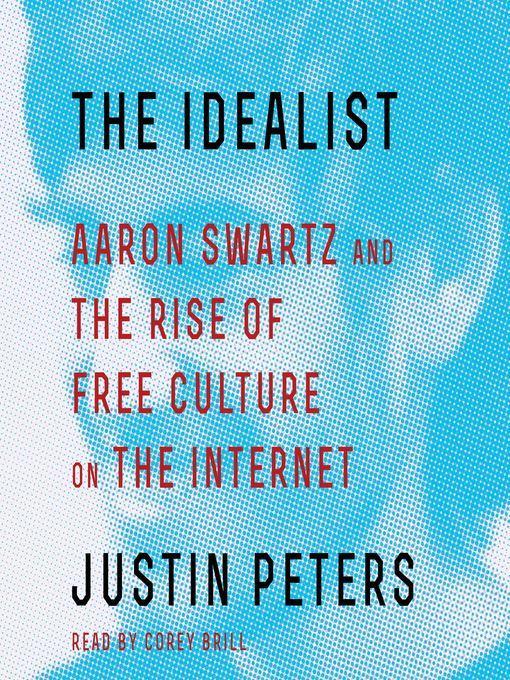
The Idealist
Aaron Swartz and the Rise of Free Culture on the Internet
کتاب های مرتبط
- اطلاعات
- نقد و بررسی
- دیدگاه کاربران
نقد و بررسی

Starred review from December 1, 2015
Aaron Swartz was a shy computer prodigy who couldn't bear to be constrained by institutional hierarchies. As a teen, he was already an independent thinker, programmer, writer, and activist deeply concerned with free and open access to information for the public good. Raised in a moneyed Chicago suburb, he came of age during the vehement first battles over music downloading, the canary in the Internet mine. Swartz's tragically shortened lifehe committed suicide at age 26, was defined by the clash between his idealistic beliefs about free culture and the ever-morphing laws governing intellectual property. Journalist Peters tells Swartz's story in full in The Idealist: Aaron Swartz and the Rise of Free Culture on the Internet. In this impressively nimble and engrossing big-picture biography, Peters places hacktivist Swartz within a pantheon of intellectual property trailblazers and presents a colorful history of American publishing, public libraries, censorship, and copyright law. He begins with Noah Webster, the founding editor of New York City's first daily newspaper, an author's rights champion in a time of brazen pirate publishers, and the determined compiler of the revolutionary American Dictionary of the English Language. Peters is equally intrigued by Henry Putnam, who served for 40 years as a progressive Librarian of Congress. Moving forward to the first wave of digital utopians, Peters profiles Michael Hart, founder of Project Gutenberg, and tracks the drama and irony implicit in the coevolution of the digital realm and the laws meant to control it. As America's youngest public-domain enthusiast, eighth-grader Swartz came up with a crowd-sourced encyclopedia that predated Wikipedia. He dropped out of his private high school, then followed Lessig to Stanford University, but college was also a disappointment. This painfully self-conscious, articulate, dogmatic, finicky free culture advocate maintained a spiky, popular blog, worked for the online startup Reddit, and became a millionaire when it was bought by Conde Nast. Swartz then launched a succession of innovative and impactive activist websites, and in 2008 put his name to a text that fatally complicated his ensuing legal nightmare, the Guerrilla Open Access Manifesto. For all his lofty ideals about open access, Swartz chose an ignoble form of digital civil disobedience, the massive downloading of scientific journals on JSTOR, an online journal storage site. He got caught, and as the humiliating and alarming investigation rolled on, this brainy, influential activist was charged with 13 felonies in an act of legal grandstanding and overkill. Even JSTOR objected to the severity of the indictment, and many felt sure that Swartz would prevail. But he became increasingly terrified, ashamed, and hopeless and, as always, chose to go his own way, taking his life in January 2013. All that fascinated, concerned, inspired, and provoked Swartz remains complex and in flux, problematic and promising as every facet of our lives is yoked to the Internet, and we struggle with issues of privacy, security, livelihood, and sociopolitical power. Swartz's writings and Peters' historically grounded and deeply involving biography illuminate the roots of today's thorny quandaries.(Reprinted with permission of Booklist, copyright 2015, American Library Association.)

























دیدگاه کاربران